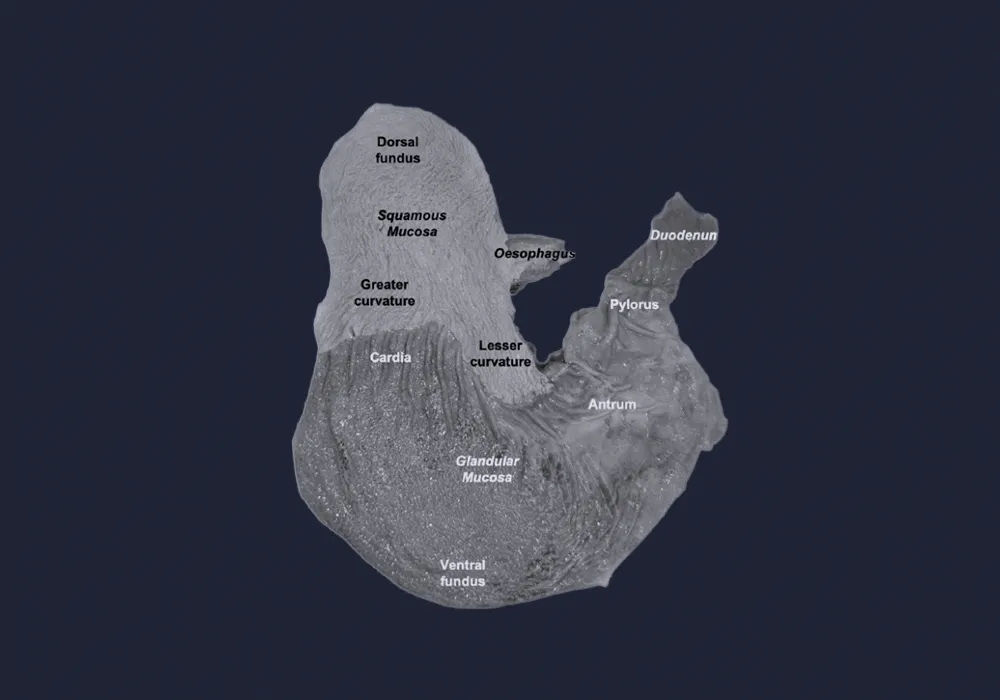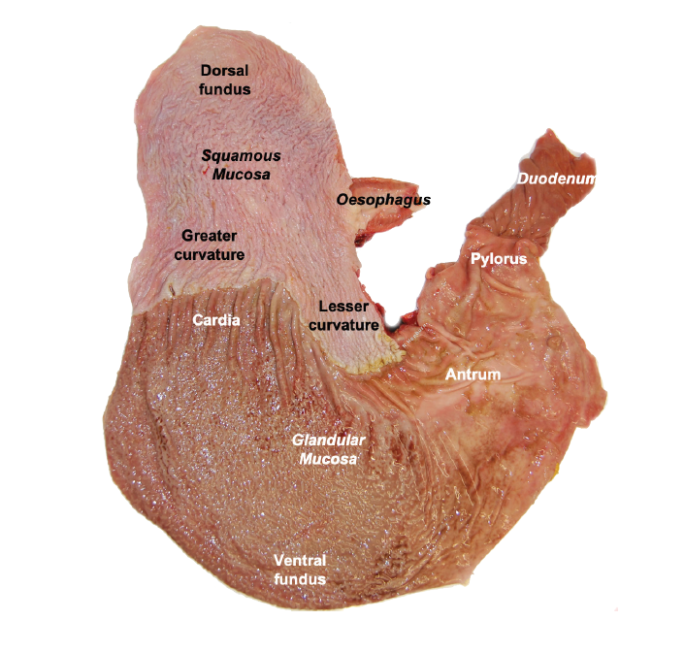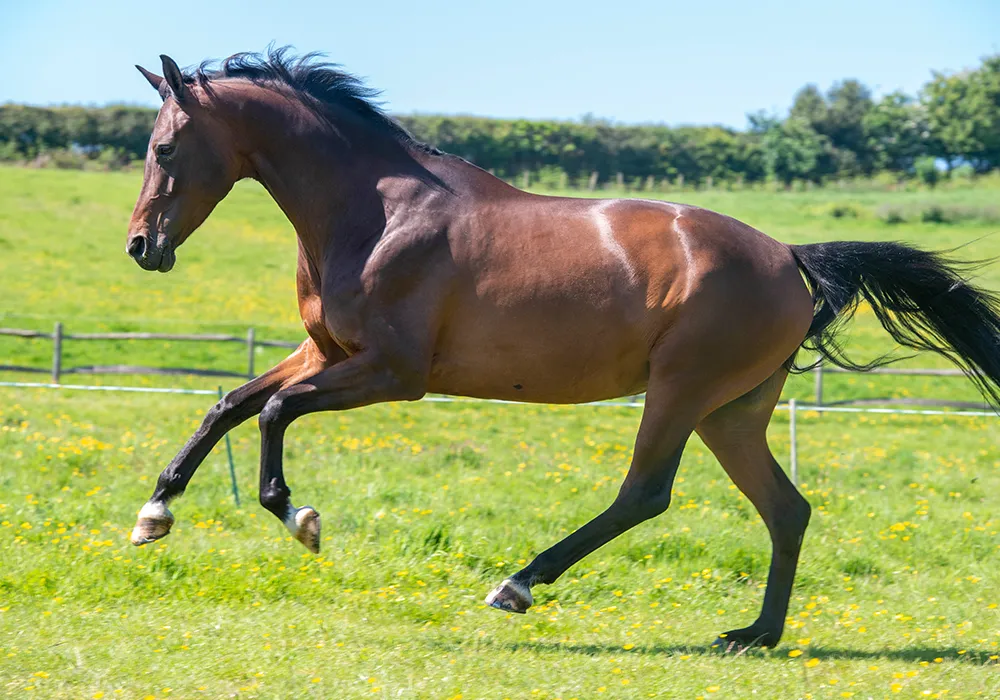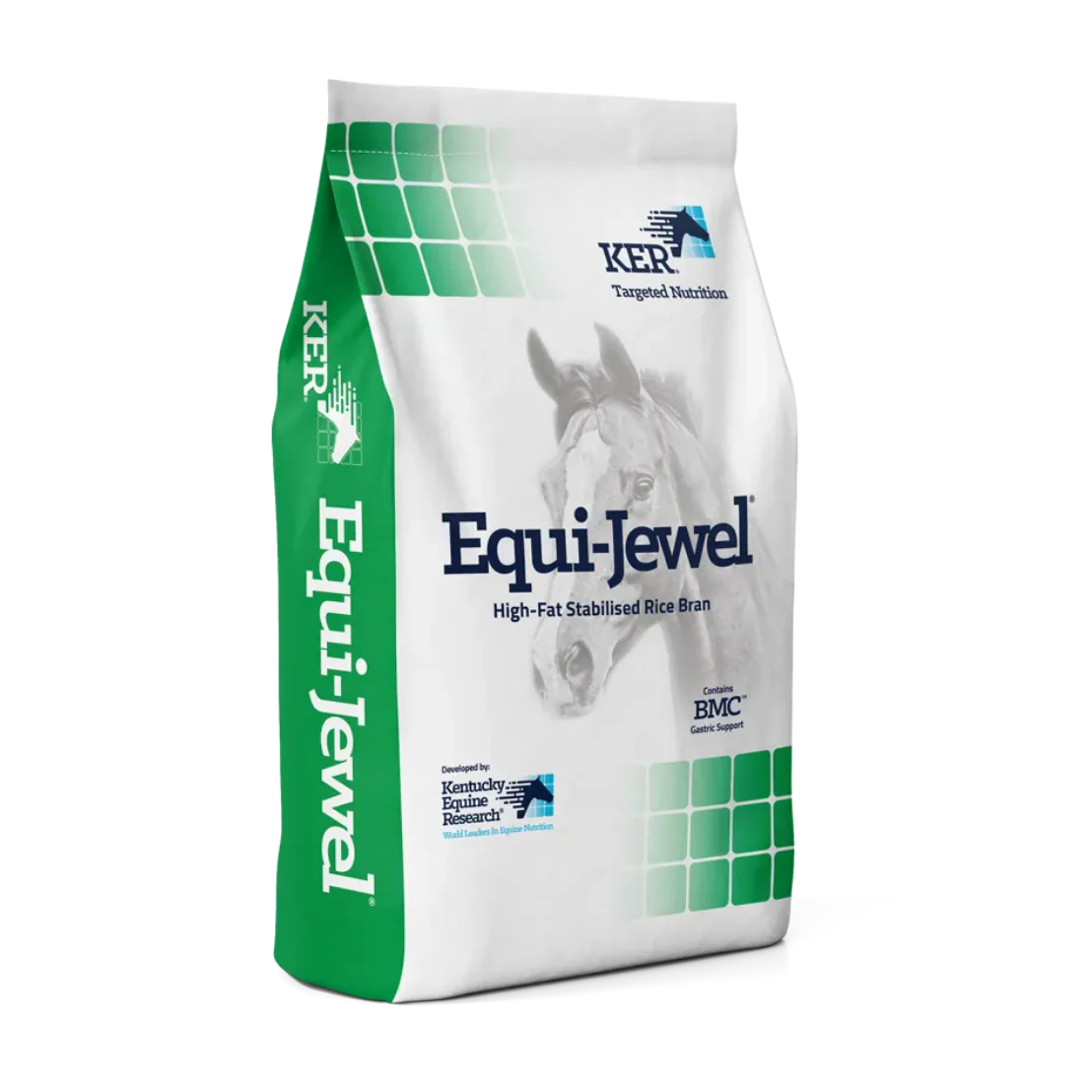What is Equine Gastric Ulcer Syndrome?

EGUS is a general term that is used to describe ulcers in the stomach, however as our understanding of EGUS has evolved the syndrome can now be split into two separate diseases.
1. Equine Squamous Gastric Disease (ESGD)
- Affects the white squamous (non-glandular) region of the stomach
- Result of prolonged exposure, or ‘splash’, from stomach acid, onto the poorly protected upper area of the stomach
2. Equine Glandular Gastric Disease (EGGD)
- Affects the pink (glandular) region of the stomach and proximal duodenum
- Result of impaired mucosal defence in the lower area of the stomach

Horses evolved to ingest a high fibre, low starch ration on an almost continual basis. Foraging behaviour is important to the maintenance of a healthy digestive tract, as not only does the flow of forage through the digestive system ensure optimal digestive health but the chewing produces large amounts of saliva, containing bicarbonate, which helps to buffer the acid that is produced in the stomach. The way in which we keep and manage horses often means that they are unable to exhibit this normal foraging behaviour and are exposed to high stress levels such as during training or early weaning, as well as being fed rations that may have high starch levels with less than optimal forage and fibre allowance catered for. These feeding and management practices have been associated with a high prevalence of Equine Gastric Ulcer Syndrome (EGUS).
Need Guidance?
If you would like any further information on feeding your horse or pony please feel free to contact our nutritional team on +44 (0)1622 718 487, email info@saracenhorsefeeds.co.uk or fill out our Feed Advice Form.

















